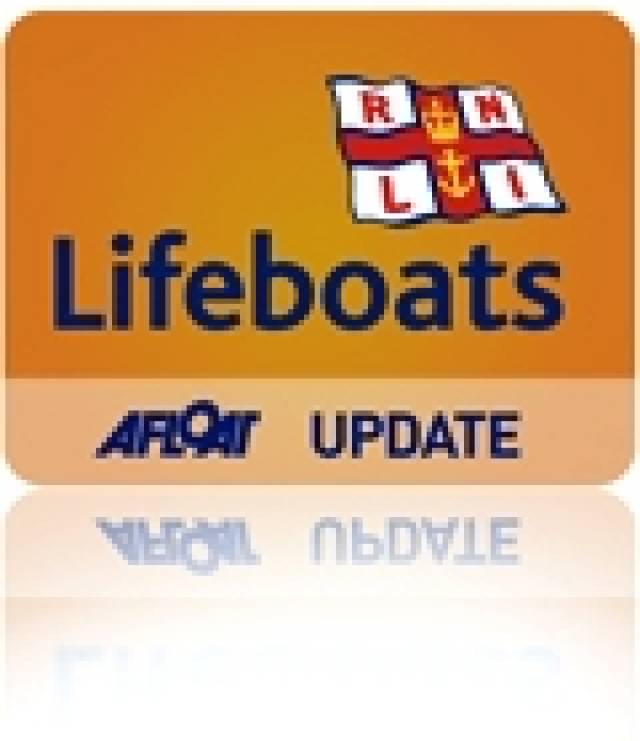#lifeboat – Lifeboat crew launched early this morning to take part in a multi agency search and rescue operation involving Kilrush and Fenit RNLI, Coast Guard rescue teams from Kilkee and Doolin.
At 3.29am Shannon Coast guard tasked Kilrush RNLI volunteer lifeboat crew to investigate a report of four persons in the water in the Poulnasherry Bay area of the Shannon Estuary.
Kilrush lifeboat crew were met by members of the public on the scene who had successfully recovered three persons safely from the water. The casualties were transferred by ambulance to Limerick Regional Hospital. Kilrush RNLI, Kilkee Coast Guard and the Shannon based Coast Guard helicopter undertook a large-scale search of the area to locate a fourth missing person.
The search operation continued through the night with the addition of Fenit RNLI lifeboat, Doolin Coast Guard, Irish Customs Vessel, Ballybunnion Rescue Services, SFPC Pilot Boat as well as an extensive shore search team from all agencies as well as navy diving units.
A person was recovered from the water at 10.42am following an extensive search.
Commenting on the callout, Pauline Dunleavy, Kilrush RNLI Lifeboat Operations Manager said: 'This was one of the largest search and rescue operation in the Shannon Estuary for a number of years. I would like to commend the quick response from all agencies especially the members of the public that assisted. On behalf of everyone at Kilrush RNLI Lifeboat Station, I wish to express our sincere condolences to the family and friends of the man who sadly did not survive.
































































